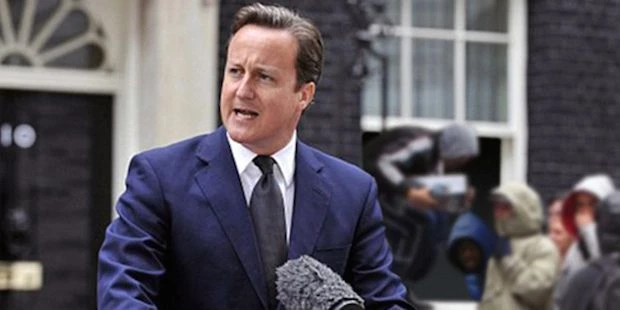
Partner Article
EU asks for another £1.7 billion as UK's economy improves
The European Union has asked for a further £1.7 billion, or €2.1 billion, towards the budget because the UK’s economy has performed above expectations in recent years.
The payment follows new calculations by the EU, which determines how much each member state should contribute based on gross national incomes and is an increase on the UK’s annual net contribution of £8.6 billion.
A spokesperson for the European Commission said it was fair because it was like personal taxation - the more a person earns, the more they have to pay.
Commission spokesperson Patrizio Fiorilli said: “Britain’s contribution reflects an increase in wealth, just as in Britain you pay more to the Inland Revenue if your earnings go up.”
PM David Cameron is currently meeting other EU leaders for a summit in Brussels and is meeting his Dutch counterpart, Mark Rutte, to discuss how they might challenge the surcharges, as the Netherlands have also been asked to pay more.
France and Germany are both set to receive rebates.
A government source told the BBC: “It’s not acceptable to just change the fees for previous years and demand them back at a moment’s notice.
“The European Commission was not expecting this money and does not need this money and we will work with other countries similarly affected to do all we can to challenge this.”
The additional payment, due on 1 December was requested after the European Commission’s statistics agency, Eurostat, reviewed the economic performances of member states since 1995, and readjusted the contributions made by each state over the last four years - based on their pace of growth.
This was posted in Bdaily's Members' News section by Clare Burnett .
Enjoy the read? Get Bdaily delivered.
Sign up to receive our popular morning National email for free.








 Ready to scale? Buy-and-build offers opportunity
Ready to scale? Buy-and-build offers opportunity
 When will our regional economy grow?
When will our regional economy grow?
 Creating a thriving North East construction sector
Creating a thriving North East construction sector
 Why investors are still backing the North East
Why investors are still backing the North East
 Time to stop risking Britain’s family businesses
Time to stop risking Britain’s family businesses
 A year of growth, collaboration and impact
A year of growth, collaboration and impact
 2000 reasons for North East business positivity
2000 reasons for North East business positivity
 How to make your growth strategy deliver in 2026
How to make your growth strategy deliver in 2026
 Powering a new wave of regional screen indies
Powering a new wave of regional screen indies
 A new year and a new outlook for property scene
A new year and a new outlook for property scene
 Zero per cent - but maximum brand exposure
Zero per cent - but maximum brand exposure
 We don’t talk about money stress enough
We don’t talk about money stress enough